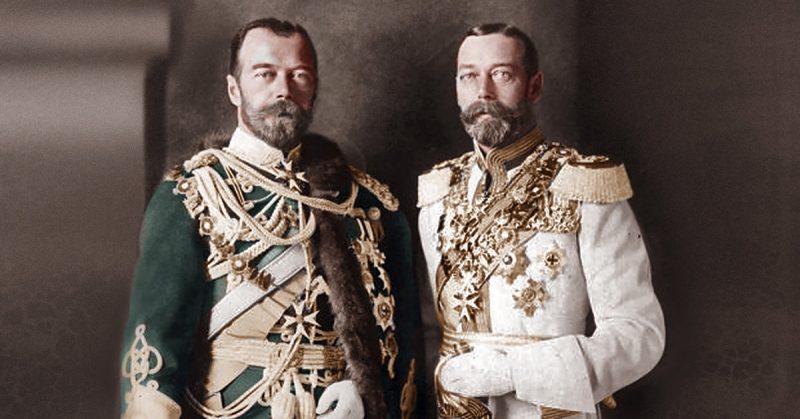Queen Victoria and her consort, Prince Albert, had nine children. Since there are only so many suitable matches for the offspring of royals, those children married into the royal houses of Russia, Denmark, Scotland, Prussia, and various German states.
The marriages produced 42 grandchildren for the English Queen, and they grew up and took their places on the world stage.
Despite historical records indicating that Queen Victoria’s family was close-knit, the simple fact is that family members don’t always get along, and a certain amount of discord occurs.
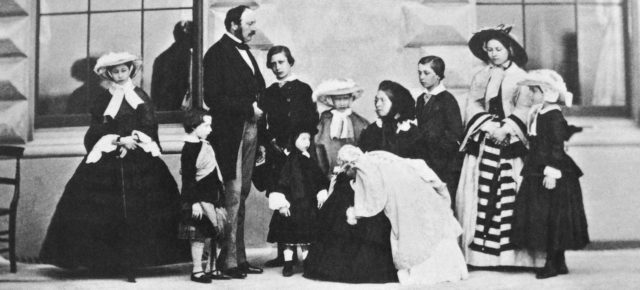
In this case, it involved three cousins, the boys who grew up to be Kaiser Wilhelm II, George V, and Czar Nicholas II, and it manifested as World War One.
According to the Daily Mail, Wilhelm was the oldest of the three cousins. He had a withered arm as the result of trauma from his birth.
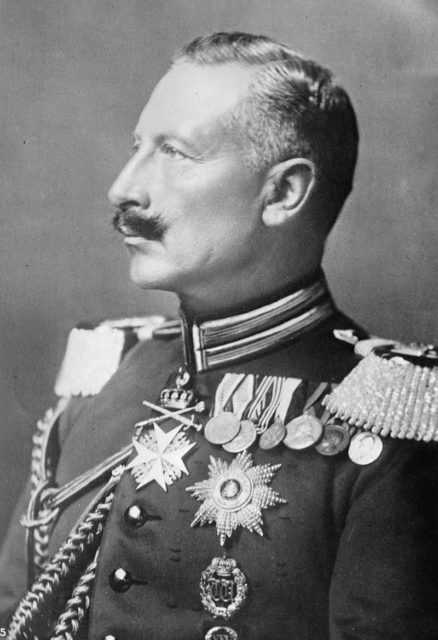
Wilhelm was known to be a difficult boy, who had a very strained relationship with his mother, Princess Victoria.
The problem may have been rooted in the fact that Victoria, or Vicky, as she was known in the family, was very unhappy at having a son that was less than physically perfect and, perhaps as a result of this, Wilhelm grew into a strange young man, who was not overly popular with his English and Russian cousins.
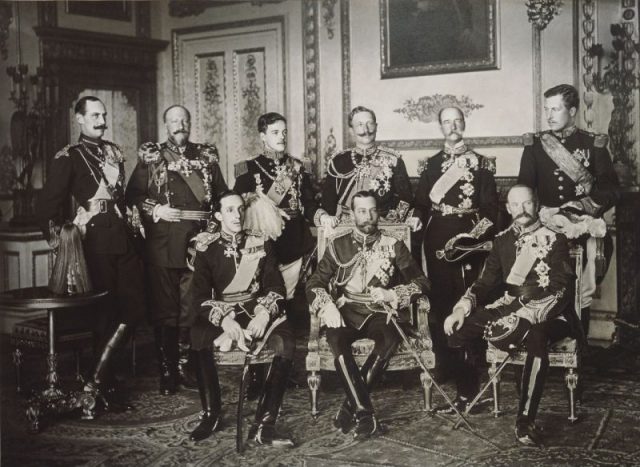
The dynamics of the relationships between these three men may well have had some impact on the development of the Great War.
The BBC relates that the late 19th and early 20th centuries had been a blossoming time for the monarchs of Europe.
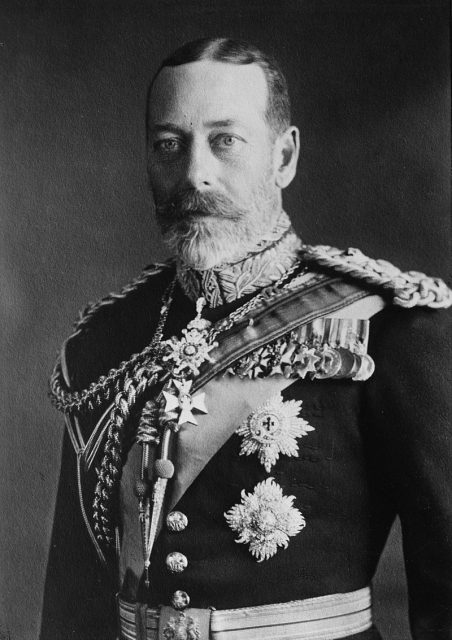
Half a dozen new monarchies had come into being during those years, and by the time that Edward VII died, there were more monarchs in Europe than had ever existed previously, with every country except France and Switzerland being headed by reigning royalty.

Some of those rulers had a great deal of power, and others, like the rulers of Great Britain, were largely figurehead rulers over constitutional monarchies.
By 1910, a number of rulers across Europe were doing their best to adapt to their subjects’ desires for suffrage or constitutions, although they were often blind to the revolutionary or republican stirrings in their countries.
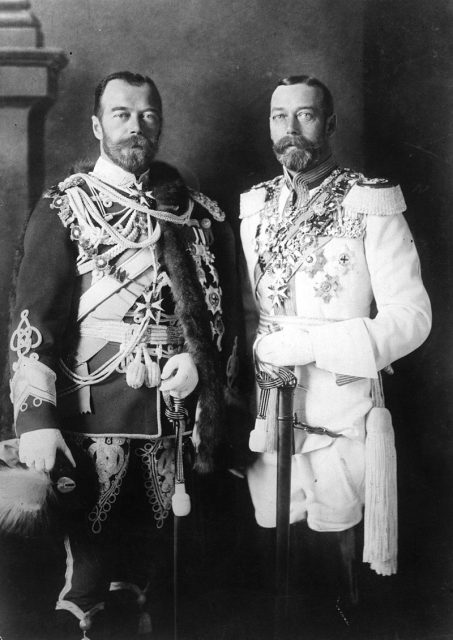
It was a period of tremendous social change, but the royal houses felt themselves to still be in strong positions, particularly because they were such close kin.
Who would go to war with their own immediate family?
The critical event that precipitated what would become WWI was the assassination of Archduke Ferdinand by a Serbian nationalist.
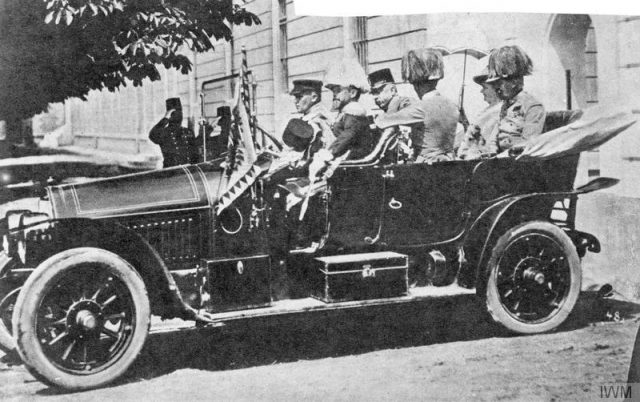
At first, the monarchs of Europe didn’t seem to think the event was as important as turned out to be.
They expected that Franz Josef of Austria-Hungary would require, and be given, an apology from Serbia.
He was, but when Serbia’s apology didn’t seem adequate, various alliances snapped into place, and the world ended up with Germany and Austria-Hungary on one side of a divide, and Russia, Great Britain, France, Belgium, and Serbia on the other.
Put another way, it was Kaiser Wilhelm on one side, and his two cousins, George V and Nicholas II on the other.
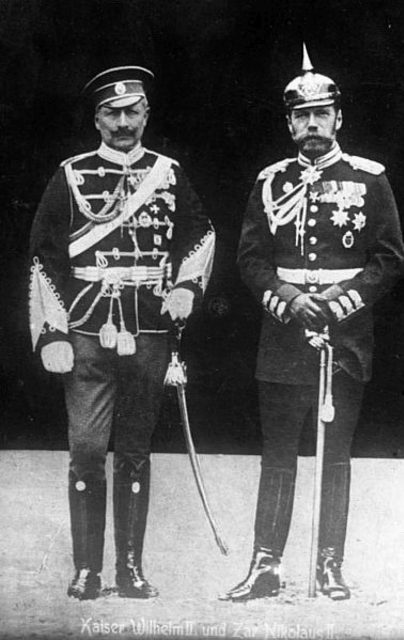
Nicholas II and Kaiser Wilhelm tried to mediate between Serbia and Austria-Hungary, communicating through a series of telegrams, according to History.
In various communications, each of the cousins expressed their concern that the current tensions not escalate into war, but Austria was mobilizing against Serbia, and the Russian military was preparing to intervene, although Nicholas told Wilhelm that his troops would take no provocative action as long as negotiations were ongoing.
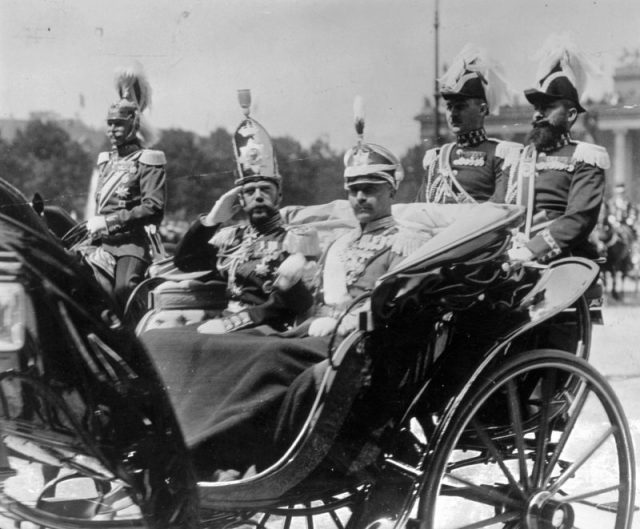
All proved futile, however, as Franz Josef called off negotiations, saying that it was too late, as Russia had mobilized, and Austria was marching on Serbia.
Nicholas stressed to his cousin that Russian mobilization didn’t have to mean war.
https://www.youtube.com/watch?v=mczSZhdqqMw&t=4s
Wilhelm offered an ultimatum, which Nicholas didn’t answer, and Germany declared war on Russia the same day. World War One began in earnest, ultimately costing Kaiser Wilhelm his rule — he ended up abdicating, and living the last years of his life in exile — and Czar Nicholas II his life, when he and his family were killed by the Bolsheviks.
Clearly, family ties were not enough for the rulers of Europe to hold back the tides of war. Much of what happened was due to pressures outside their control, but it’s interesting to speculate how much may have been influenced by underlying familial tensions.
